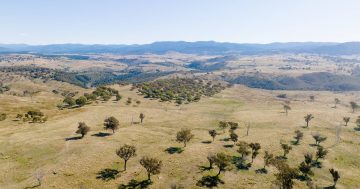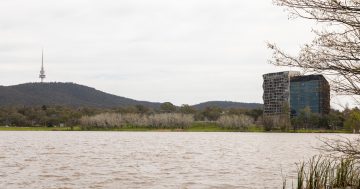
Chief Minister Andrew Barr was the responsible Minister at the time. A corruption inquiry could pose problems in an election year. Photo: Michelle Kroll, Region Media.
The ACT Labor Government may go into an election year with a corruption inquiry complicating its bid for a sixth term after an Assembly committee recommended the ACT’s new Integrity Commission probe land deals that have dogged it for years.
The Standing Committee on Public Accounts tabled its report on the Auditor-General’s 2016 report, Certain Land Development Agency acquisitions, and has recommended that all matters be referred to the ACT Integrity Commission, which opens for business from Sunday.
Chief Minister Andrew Barr, who was the responsible Minister at the time of the land acquisitions, has denied knowledge of details of the deals.
The land deals by the now-defunct Land Development Agency involved boat and bike hire businesses and Glebe Park, all related to the City to the Lake project, but it was its purchase of land adjacent to Glebe Park that has caused the most controversy and was the focus of the Committee, which found there were grounds to believe that actions of the ACT Government were influenced by casino owner, Aquis Entertainment.
“This is important because it goes to the question of whether government serves public or private interests,” the Committee said.
Developer Barry Morris told the Committee that Glebe Park Pty Ltd, of which he was a director, had purchased the land in the early 2000s and had subdivided it to build the Glebe Park Residences, leaving the 1.2 hectares of remaining land in question.
In June 2015, the LDA acquired the land for $4.18 million, more than four times the original valuation.
The Committee sought to establish whether there was any connection between the acquisition of the land at Glebe Park and plans by Aquis Entertainment to re-develop the casino.
Witnesses, including former LDA chief David Dawes, had said that the sole purpose of this acquisition was to allow a stormwater pond to be relocated and was never intended to be part of a redeveloped Canberra Casino, but the committee says Aquis’ written evidence shows that the Government was well aware of, and indeed encouraged, Aquis’ plans to develop the land adjacent to Glebe Park.
“This raises the question of why the ACT Government would intervene by acquiring the land when a transaction could have taken place directly between Aquis Entertainment and the then lease-holders, Glebe Park Pty Ltd, without involvement by government,” the committee says.
“In light of this, the ACT Government’s role as: current owner of the land adjacent to Glebe Park; decision-maker on planning and lease conditions; and regulator of gaming in the Territory, together with unresolved questions over the future of the land amounts to an apprehended conflict of interest on the part of the ACT Government, which should be resolved.”
Mr Dawes told the Committee that the LDA had contemplated moving Coranderrk Pond on Parkes Way because it wanted more space to accommodate the proposed stadium on the site of the Canberra Olympic Pool.
The Committee found that the LDA did not follow due process and was not in possession of a current valuation when it purchased the Glebe Park land.
It said the LDA also sought to influence valuations in other cases and did not comply with the Land Acquisitions Policy Framework.
The LDA’s approach across all the acquisitions was inconsistent and they were made without a clear, defensible basis for the amounts paid, the committee found.
It said there were significant questions of probity and about the conflicting evidence presented.
The Committee was chaired by Liberal MLA Vicki Dunne. Other members included Labor’s Tara Cheyne (Deputy Chair from 20 September 2018), Liberal Nicole Lawder (from 20 September 2018), Bec Cody (Labor), Liberal Alistair Coe (until 20 September 2018) and Labor’s Michael Pettersson MLA (until 20 September 2018).
The ACT Integrity Commission, headed by CEO John Hoitink, will commence receiving corruption complaints from Sunday.
It is empowered to investigate a wide range of allegations concerning corrupt conduct on the part of ACT public officials and ACT public sector entities.
Any person may make a complaint to the Commission about conduct that may be corrupt conduct.
Complaints can be made to the Commission.














